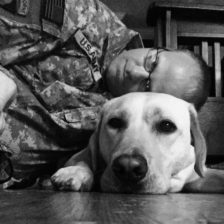If you give a caregiver a cup of coffee, you might get an insight into their daily routine.
You might hear how the caregiver wakes early in the morning to get himself/herself ready for the day before waking the rest of the family members.
She or he may enjoy the quiet moments of the early morning. He or she may start the day with the news, coffee, or breakfast. Then they go about rousing the rest of the house, making sure everyone is cared for. Lunches packed, breakfast made, clothes ready to go, medicine out, and to-do lists ready.
If you give a caregiver a listening ear, you may get a narrative of what life might have been or used to be.
Not all caregivers have an easy task like simply checking on the loved one to see that they made it out the door with all of their items for work (keys, badge, wallet, phone, medicine, lunch, coffee). Some caregivers rise early in the morning, help their loved one out of bed, with a shower, with getting dressed, and with breakfast.
Not all caregivers can work outside the home. Some caregivers are transitioning into a full-time role of being at home, taking care of all the everyday needs of the home and family. Some caregivers give up careers, education, and take on the role of the caregiver so their loved one does not have to worry about who will come visit with them, who will get them to the doctor or make sure they have their medicine.
A caregiver may long for the life before the war, before the injury, before the chaos, before the ups and downs.
If you give a caregiver a platform, watch them advocate for what their loved one needs.
She will fight until her last breath to make sure her Veteran is cared for at each VA appointment. She works so she and her family can have a better life: more opportunities, a chance to go on vacations, a chance to have good insurance, a chance to show her kids you can overcome adversity.
She will educate herself on PTSD, TBI, moral injury, and the loss of battle buddies near and far. He will try and isolate, but she will be there simply to listen and offer a kind word, offer a hug, offer her love.
If you give a caregiver a chance, he or she can make a difference. Some of my dearest friends are advocating on behalf of military families right now. They have convened in Washington D.C. with the Elizabeth Dole Foundation. Caregivers will empower their communities, their families, friends, and loved ones to make a difference on behalf of Veterans from all eras.
Military families are dedicated. They know how to fight and they know how to survive.
If you give a caregiver a platform, they will advocate, support, and stand up for what they believe is right until they do not have the breath to do so. And someone will continue the fight for them.
Caregivers often fill from empty cups. They want to give back to a community, organization, charity, or foundation that has given them so much. Sometimes they are unsure of how to do this, so be patient. Be gentle because sometimes caregivers are not often gentle with themselves.
Caregivers sometimes avoid self-care because they feel they have too much to do, too much to accomplish in a short amount of time, and taking time out for themselves is just foolish, selfish.
If you give a caregiver a few hours, he or she can take a small break.
Caregivers may not ask for much. They may walk alongside you without you even knowing. They smile, they go about their day, but deep down they long for a break. A chance to nap. A few hours without interruption, worry, or stress. Start a conversation, say “hello.” Those small gestures can mean so much.
If you give caregivers a chance, they can show you how resilient they are.
Life with a Veteran spouse is not easy. There are good days, bad days, bad hours, bad weeks, good weeks. There are moments of memory loss, forgotten events, birthdays, and directions to and from a place that might seem most familiar.
There are really good days of improvement on taking meds, a good night’s sleep, and a full day of activities. There are also really bad days of triggers and nights of upsetting memories flashing around in their heads.
Caregivers rise and take it all on. Caregivers lose sleep themselves, have bad days, hours, weeks, along with all the good. Caregivers are strong, even when they feel weak. Caregivers are tough, even if they want to crack.
Caregivers help those who might be in need and they help those that they love. See them. Get to know them. Give them a chance to share their stories with you. Stories matter.

